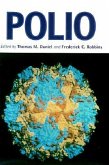Although ancient and medieval doctors knew of the disorder called diabetes, the disease they treated was rare and largely confined to young sufferers. By the late Renaissance, however, the increasing incidence of diabetes in older adults required a re-examination of what caused the malady and how to cure it. Led by English healers, such as controversial apothecary Nicholas Culpeper and elite physician Thomas Willis, the study of diabetes produced significant debate in print over the locus of the disease and remedies for its treatment. These debates paralleled the growing schism in English medical circles over contradictory iatric theories and professional jurisdiction. On the eve of insulin's discovery, diabetologists still quarrelled over what diets might alleviate its symptoms. Including perspectives from patients and drawing on myriad sources, this book examines changing approaches to diabetes and its victims within the context of medical and scientific progress.
Hinweis: Dieser Artikel kann nur an eine deutsche Lieferadresse ausgeliefert werden.
Hinweis: Dieser Artikel kann nur an eine deutsche Lieferadresse ausgeliefert werden.








